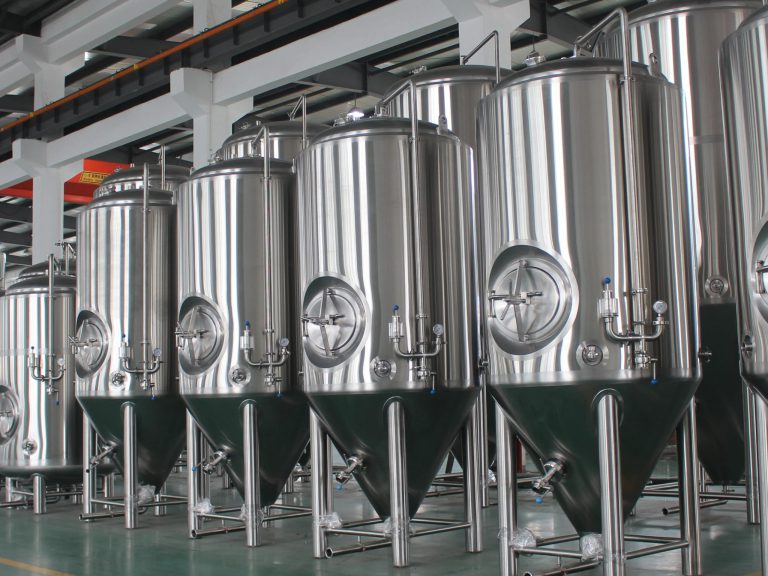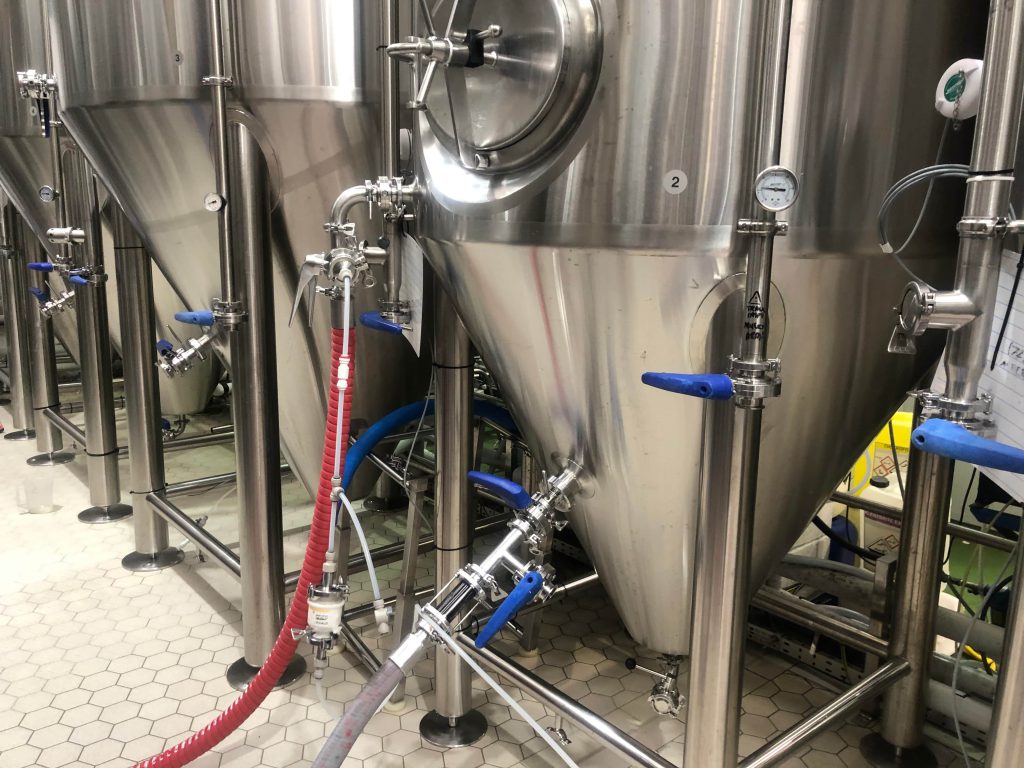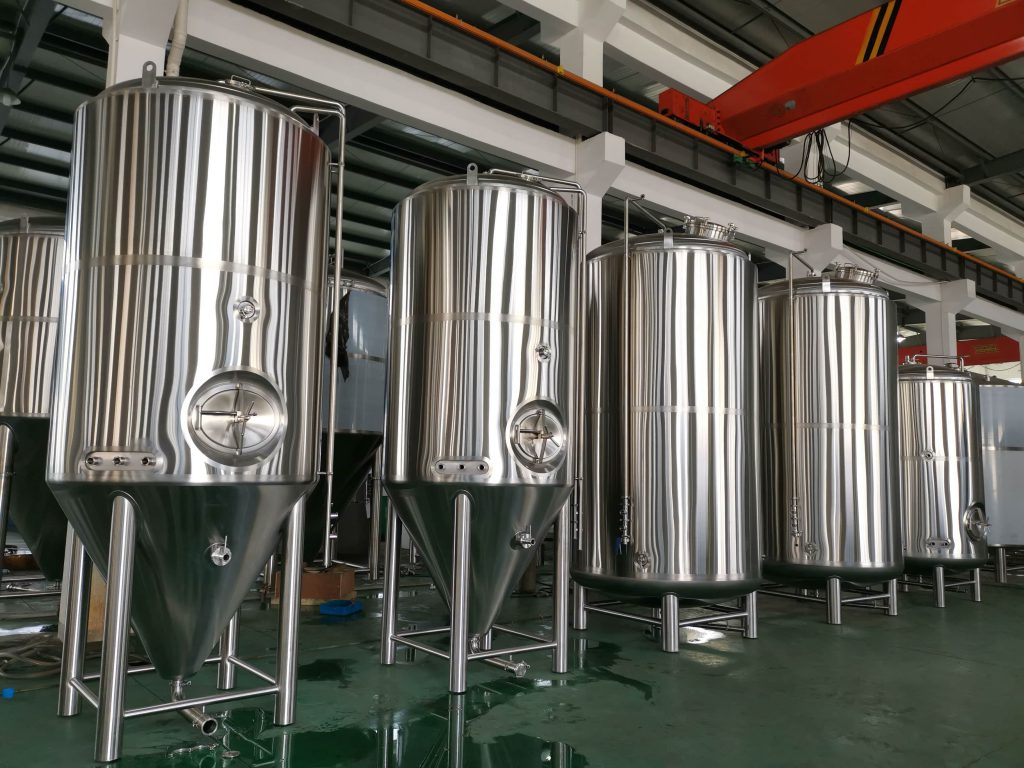introduzione

In the realm of brewing, selecting the right fermentation vessel is critical to achieving optimal beer quality and efficiency. Among the various options available, conical fermentation vessels have emerged as a preferred choice for brewers ranging from enthusiastic amateurs to large-scale commercial operations. This blog delves into the numerous advantages offered by conical fermentation vessels, exploring their impact on the brewing process and why they are favored by brewers worldwide.
Benefici di Conical Fermentation Vessels
Improved Yeast Management
Conical fermenters revolutionize yeast management by facilitating straightforward yeast harvesting and separation of trub (the sediment of hops and proteins). Unlike flat-bottomed fermenters, which often necessitate cumbersome manual processes to remove yeast, conical vessels allow brewers to collect yeast from the bottom of the cone easily. This capability not only streamlines the fermentation process but also promotes cleaner fermentation and enhances the overall flavor consistency of the beer.
Enhanced Fermentation Control
The conical shape of these vessels contributes significantly to fermentation control. This design promotes a more efficient circulation of fermenting beer, ensuring that yeast and fermentation by-products are evenly distributed throughout the batch. The result is more consistent fermentation temperatures and better attenuation rates, which are crucial for achieving desired flavor profiles and maintaining product quality.
Efficienza dello spazio
Conical fermenters are renowned for their space-saving design, integrating both primary and secondary fermentation stages into a single vessel. This consolidation eliminates the need for additional equipment and reduces the footprint in brewing facilities. Such efficiency is particularly advantageous for homebrewers with limited space, enabling them to conduct both fermentation phases without the space constraints associated with traditional fermenters.
Rischio ridotto di contaminazione
Maintaining a sterile brewing environment is paramount in beer production to prevent contamination and ensure product integrity. Conical fermenters mitigate contamination risks by featuring sealed tops and minimal exposure to external contaminants. This design minimizes the likelihood of off-flavors and microbial spoilage, thereby upholding the quality and purity of the final product—a critical consideration for breweries striving to meet stringent quality standards.
Facilità di pulizia
Efficient cleaning and sanitation procedures are essential for maintaining brewing hygiene and preventing cross-contamination between batches. Conical fermenters simplify this process with their accessible shape and design. Brewers can easily access and clean all surfaces of the vessel, including the conical bottom where sediment accumulates. This streamlined cleaning regime not only reduces downtime between brews but also enhances overall brewery sanitation practices, contributing to consistent beer quality and customer satisfaction.
Case Studies and Comparative Analysis

To illustrate the benefits of conical fermentation vessels further, let’s compare their performance with traditional flat-bottomed fermenters in a typical brewing scenario:
| Aspetto | Fermentatore conico | Flat-bottomed Fermenter |
|---|---|---|
| Raccolta del lievito | Easy; efficient separation | Manual; cumbersome separation |
| Controllo della temperatura | Even distribution; efficient | Variable; less control |
| Space Requirement | Compact; integrated stages | Larger footprint; separate vessels |
| Contamination Risk | Low; enclosed design | Higher; open top |
| Processo di pulizia | Quick; accessible shape | Time-consuming; more parts |
Conclusione
Conical fermentation vessels represent a significant advancement in brewing technology, offering brewers unparalleled advantages in yeast management, fermentation control, space efficiency, contamination prevention, and cleaning ease. Whether for small-scale homebrewing or large-scale commercial operations, these vessels empower brewers to achieve greater consistency and quality in their craft beers. As the brewing industry continues to evolve, conical fermenters remain indispensable tools for brewers committed to innovation and excellence in beer production.
FAQ
D: Lo sono conical fermenters suitable for homebrewing?
A: Yes, many homebrewers find conical fermenters beneficial due to their compact size and integrated fermentation stages, which simplify the brewing process.
Q: How do conical fermenters affect the flavor of beer?
A: Conical fermenters contribute to cleaner fermentation and more consistent temperature control, resulting in improved flavor profiles and overall beer quality.
Q: What materials are conical fermenters typically made from?
A: Stainless steel is the most common material due to its durability, ease of cleaning, and ability to maintain stable fermentation temperatures.
Q: Can conical fermenters be used for lagering?
A: Yes, conical fermenters are versatile and suitable for both ale and lager fermentation, including extended lagering periods.
D: Lo sono conical fermenters more expensive than traditional fermenters?
A: Initially, conical fermenters may have a higher upfront cost. However, their long-term benefits in terms of efficiency, quality, and reduced cleaning time often justify the investment.

